Do you worry about today or what the future holds? A constant in life is worry, and there are plenty of things to worry about. However, sometimes it’s useful to put worry in context by considering fears that Americans previously faced.
Stepping back in history provides encouragement (we’ve been here before) and hope (we’ve also moved onward).
Most folks have no particular reason to remember June 21st. But in 1877, it became known as Black Thursday, or the Day of the Rope, when Pennsylvania hanged 10 men. Within 18 months, the State hanged 10 more. They were mostly innocent Irish Americans and coal miners.
If you’re not familiar with the story, ask someone from the anthracite coal region of northeastern Pennsylvania, or watch The Molly Maguires with Sean Connery. My husband told me about his great-grandfather, a member of the Molly Maguires.
It started when Irish Catholics fled atrocities, starvation, and the Great Potato Famine. They did not arrive as a privileged group but clawed their way to a better life through hard work and determination. They readily accepted the sacrifice, for in exchange, America offered them life, liberty, and the pursuit of happiness.
These Irish immigrants began where they could — as coal miners. They earned $3 a day working 12-hour shifts 6 days a week. Mine owners took rent from wages. With no choice but to shop and pay inflated prices at the company store, they fell deeper into debt with the mine owner.
Coal miners faced dangerous conditions such as hazardous gases, coal dust, smoke, falling rocks, fires, and flooding. If they survived, many succumbed to lung diseases by age 50. My husband’s grandmother lost two husbands to coal mining accidents.
Miners’ sons also joined the unsafe work. Breaker boys entered the coal mines around age 8, because their small hands made it easier to remove impurities. The young boys spent 12-hour shifts in near-darkness while hunched over chutes of coal.
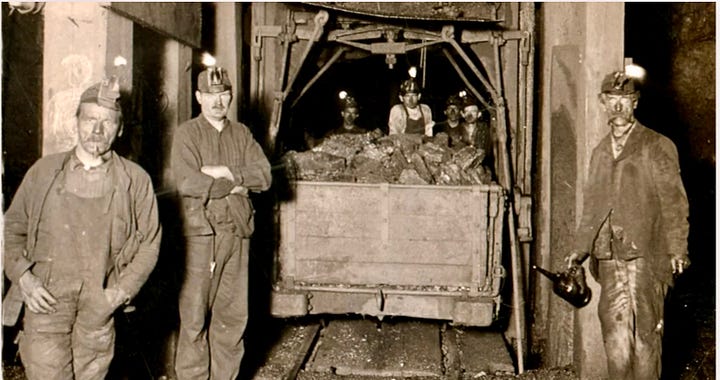
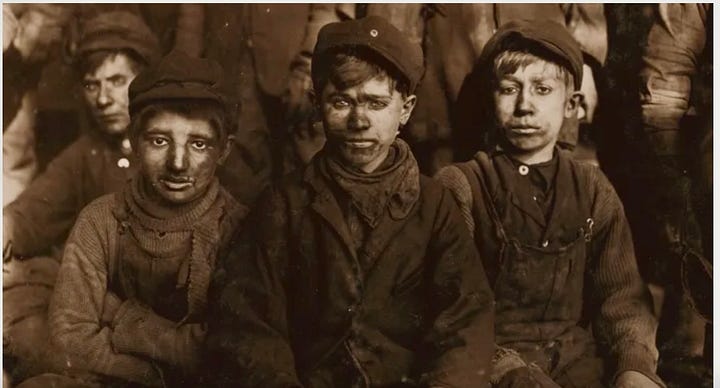
Enter the Molly Maguires, a labor movement. Focused in northeastern Pennsylvania, they pushed for fair wages and safer working conditions in the coal mines.
Owners of coal mines, as well as the closely linked railroad industry, had no sympathy. Frank Gowen, who ran a monopoly that included the Reading Railroad and coal mines, was determined to end the Mollies. With unlimited resources and political power, he used extreme measures. He created his own Coal & Iron Police and hired the infamous Pinkerton Detectives to infiltrate the group. He convinced the Archbishop to threaten Molly Maguires with excommunication, which they ignored.
After the collapse of a strike, Gowen was integral in decreasing miners wages by 20%. The region experienced tit-for-tat violence between mining/railroad bosses and the Molly Maguires. Gowen’s Coal & Iron Police shockingly escalated tensions by shooting Mollies, including killing a pregnant mother and her unborn baby. The perpetrators were not arrested, although witnesses had seen Gowen’s Police.
The exact actions of the Molly Maguires remain unclear. Debate raged whether Mollies or vigilantes killed mining/railroad managers. The Molly Maguires contended they were victims of false evidence. Historians believe a Pinkerton informant, whose testimony condemned all 20, fabricated statements.
Gowen then led efforts to mastermind kangaroo trials — all to rig the outcome. They prohibited Irish Catholics from serving on the jury and used jurors lacking English or from immigrant groups with prejudices against the Irish.
Harold Aurand wrote in Coal Cracker Culture about this miscarriage of justice:
The Molly Maguire . . . trials marked one of the most astounding surrenders of sovereignty in American history. A private corporation initiated the investigation through a private detective agency, a private police force arrested the supposed offenders, and coal company attorneys prosecuted — the State provided only the courtroom and hangman.
Not surprisingly, jurors returned guilty verdicts. The Commonwealth of Pennsylvania hanged 10 Mollies on 21 June 1877 and another 10 in following months. Instead of standing up against the wickedness, officials stood by as Gowen and his monopoly bent the levers of government for illegal goals — they got away with it for 102 years.
That changed in 1979, when Pennsylvania issued a pardon and admitted the trials and hangings represented “a shameful part of . . . history.”
The Molly Maguires are now heralded as heroes. The Schuylkill County Historical Society highlights the Molly Maguires and sells a book describing them as “labor’s martyred pioneers.”
Faithfulness and fortitude. An article about the 20 Molly Maguires that were executed described “their stoicism” and “steadfast faith.”
Thomas Fisher discussed “the will of God” and shared he was “ready whenever God calls me.”
Patrick Hester said what “troubles me . . . is to die [for] what I am not guilty.” Remarkably, he prayed God would forgive the men who had plotted against him and acknowledged “everything has to come as God wills it.”
Other Molly Maguires did the same. Almost 150 years later, their faithful fortitude has “prove[n] more enduring” than the wicked men who tried to destroy them.
My husband’s great-grandfather, Patrick Collins, also had faithful fortitude. He fled cruelties to start afresh in America. Of course, being Irish and Catholic did not mean the land of opportunity would be within easy reach. Patrick refused to let that stop him but sacrificed, toiled, and worked hard trusting in America’s promises that all men are created equal [and] endowed by their Creator with certain unalienable Rights.
Patrick became County Commissioner of Schuylkill County in the midst of the Molly Maguire persecutions. Driven by a sense of right versus wrong, Patrick also held a leadership position within the Molly Maguires. This made Collins a marked man.
In fact, the New York Times wrote a hit-piece about Patrick Collins shortly after the first Molly Maguires hanged. The article praised the “Honorable Gowen,” who smugly asserted, “the day will come” when Patrick Collins “[will] be hung” in the very “jail” Collins built as County Commissioner.
Collins lived into old age. Gowen didn’t.
We credit Patrick’s survival to God’s providential mercy. From knowing Mollies who died to himself being falsely accused, he endured “evil men” conspiring to “make this evil world.”
Having fled atrocities in Ireland only to find them in his new country, Patrick Collins could have become embittered toward life, America, and God. But, he did not. He taught his children to love God and country and to stand against wrongs; these values continued like a river flowing through his descendants.
From his son, who received a Purple Heart during World War I, to each subsequent generation — Patrick’s descendants demonstrated faithful fortitude, commitment to family, and service to Nation. Now my husband teaches our own son. This happens not by accident, for “one generation commends” Godly faith and values “to another.”
Patrick Collins embodies the legacy of the Molly Maguires.
All these years later, they are remembered and honored. Rather than focusing on the temporal, they endured, they maintained their faith, and they stored up treasures in Heaven. Sacrifice, duty, and faith were not merely words but a forced act of their wills.
That mantle now passes to us. Ours is a duty to teach the next generation to love God and country and to stand up against wrongs. Let challenges not overwhelm — ponder history, and perhaps our troubles will pale in comparison.
With Father’s Day last week, it’s appropriate to remember
“my father’s God” is also “my God,” and He is most certainly
“my strength,” “my defense,” and “my salvation.”
Exodus 15:2




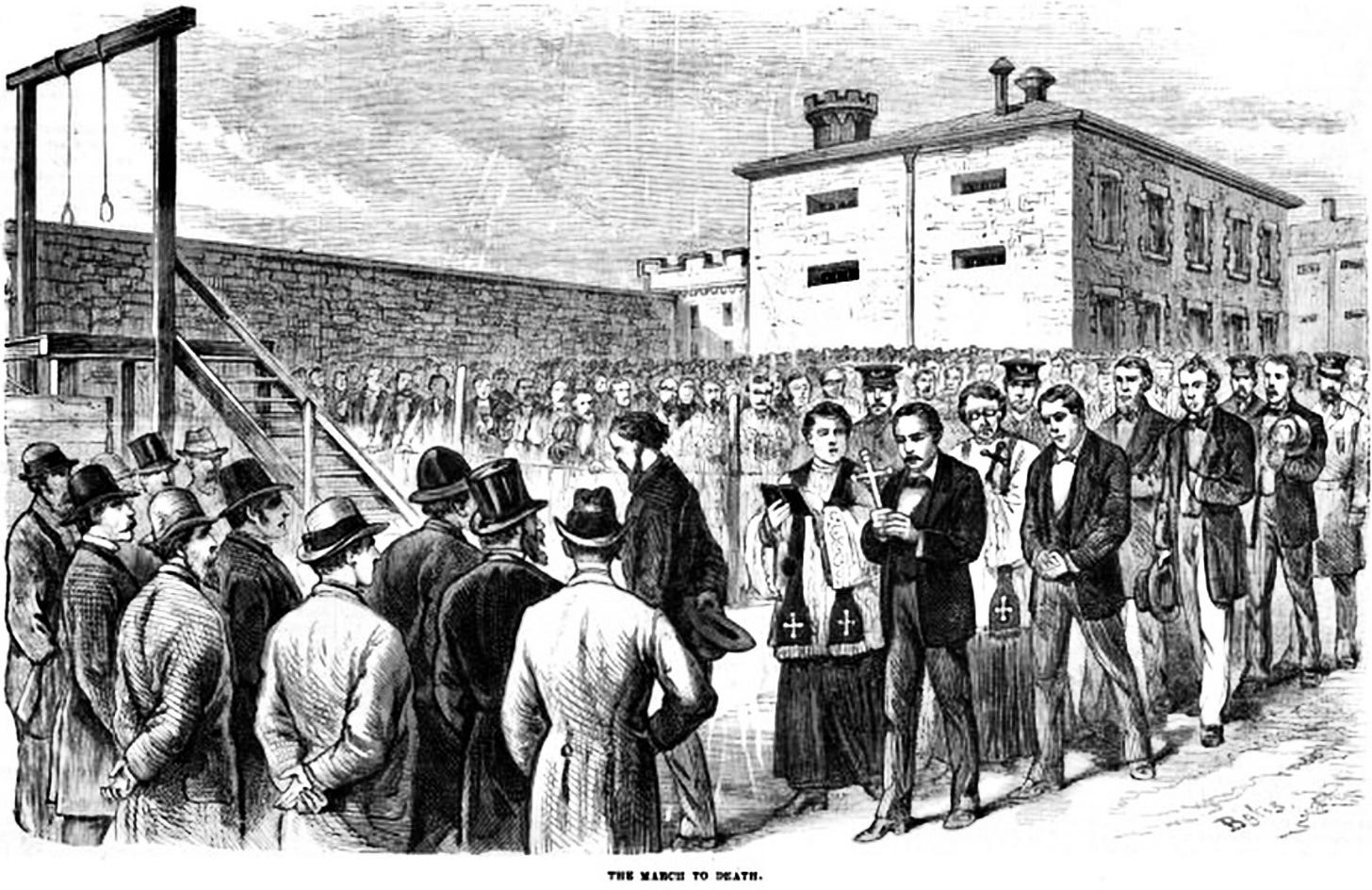
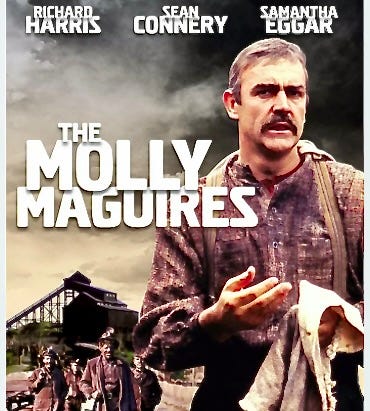
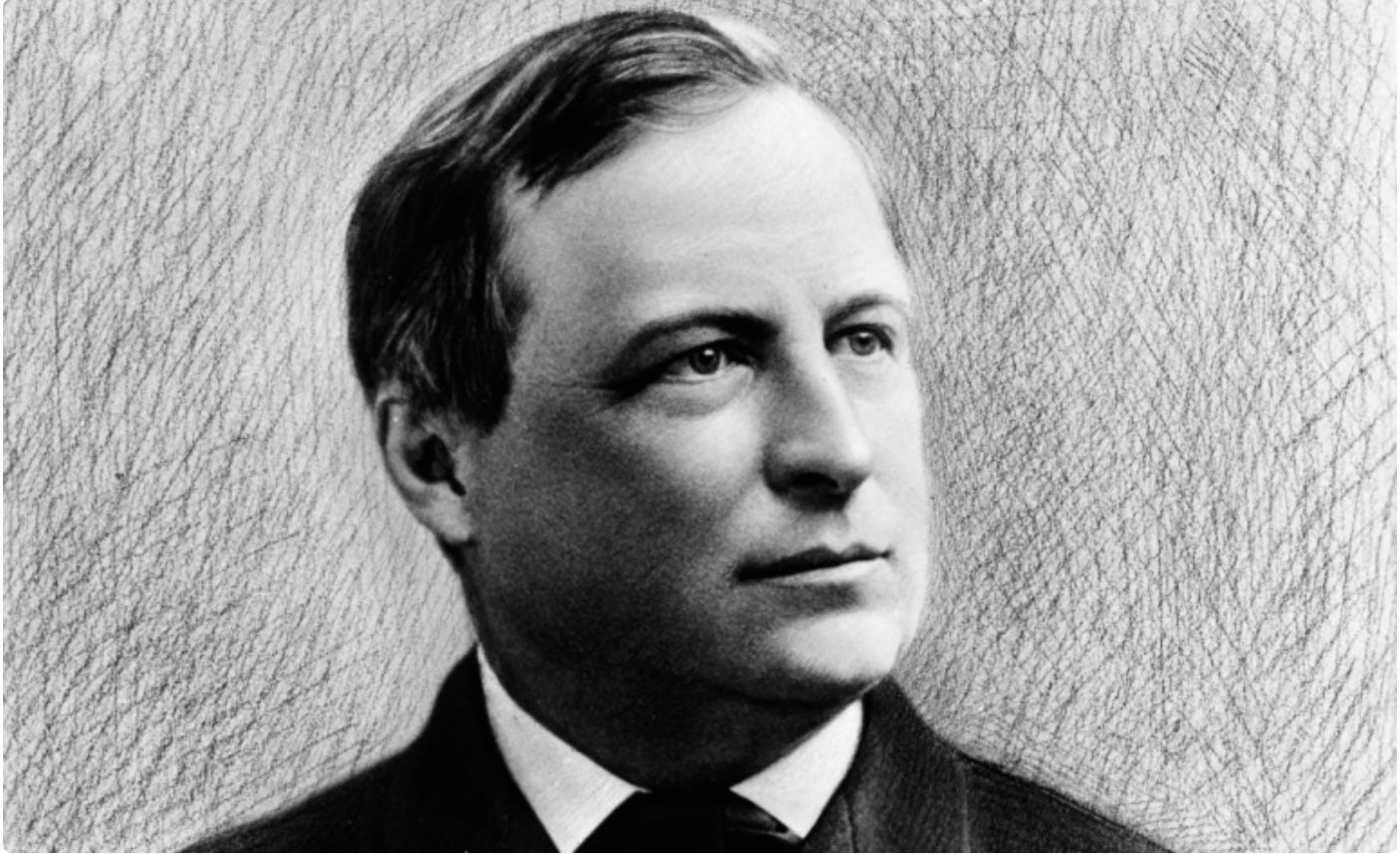
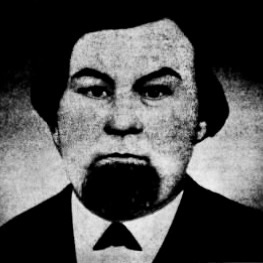
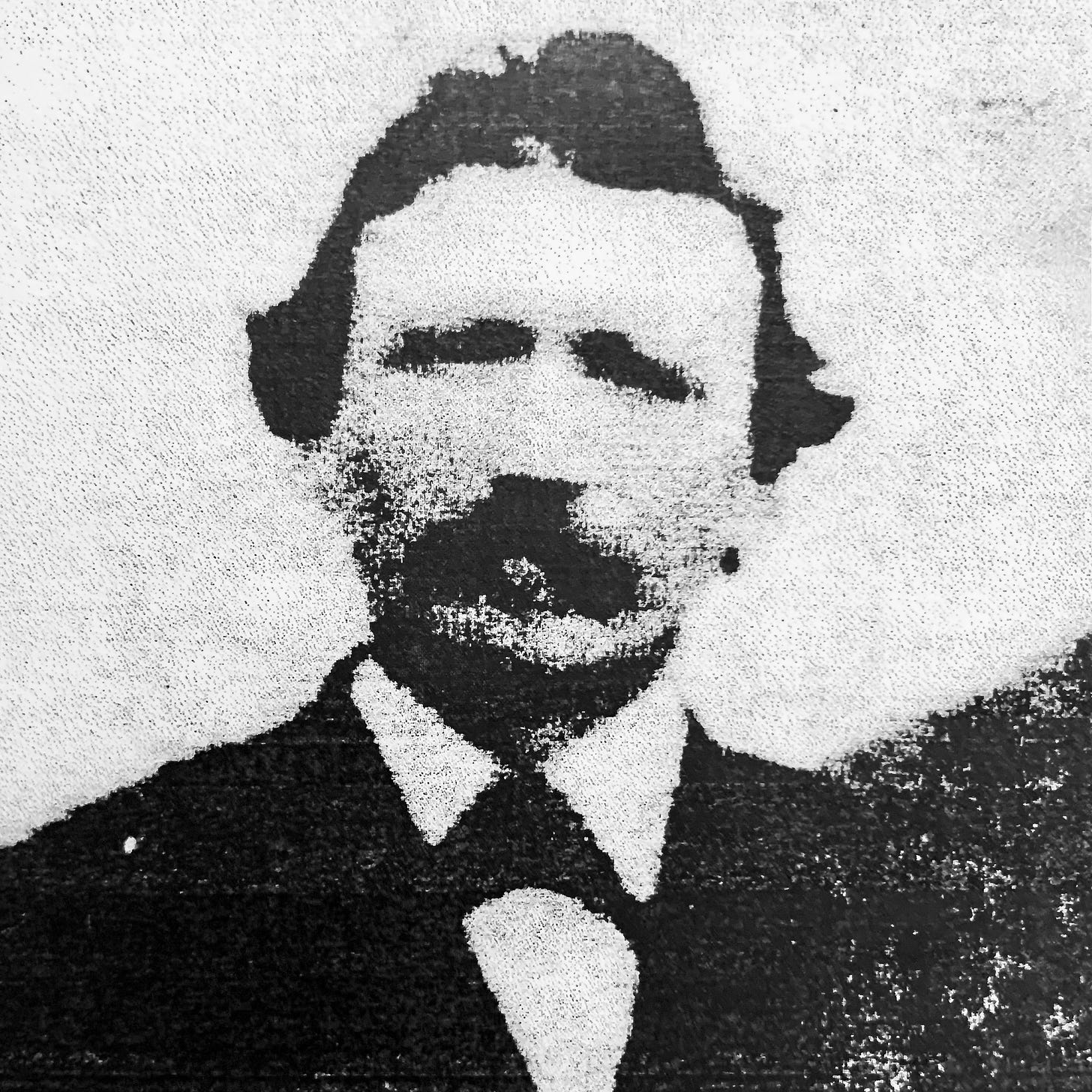
Wonderful article, Hilary. Awful way of life for those miners. Shows the corruptness of the human race. Such perseverance through horrible circumstance and continued faith in God. Thank you for sharing.